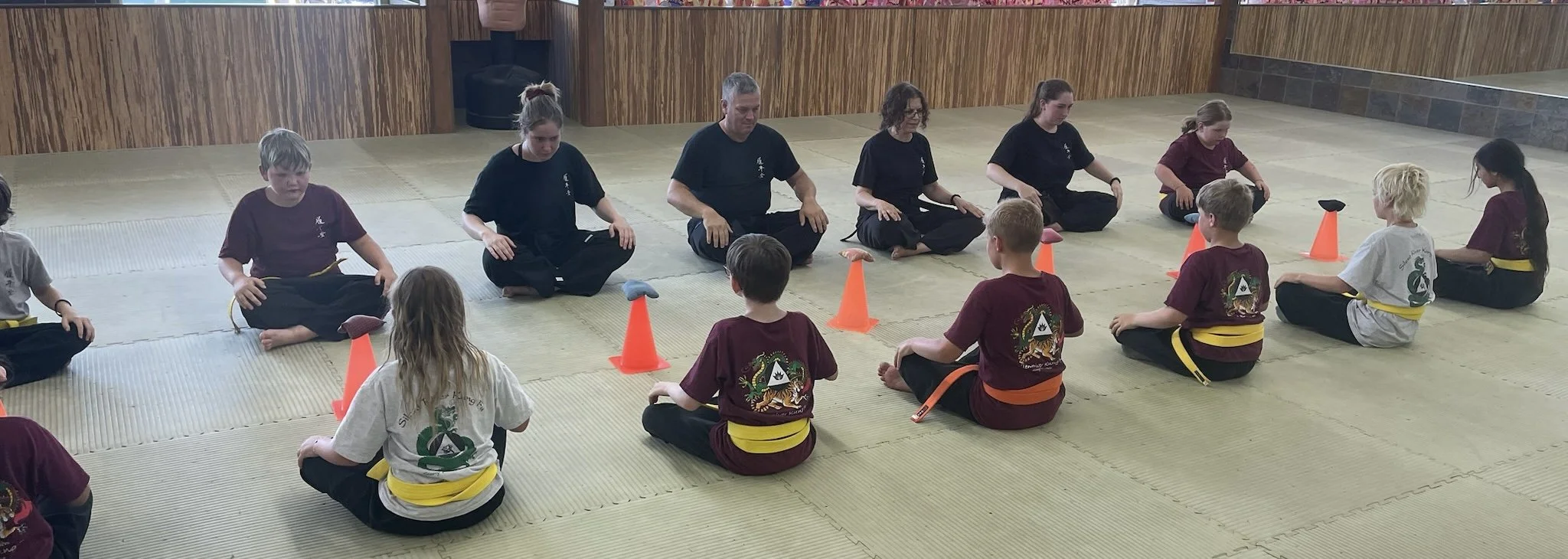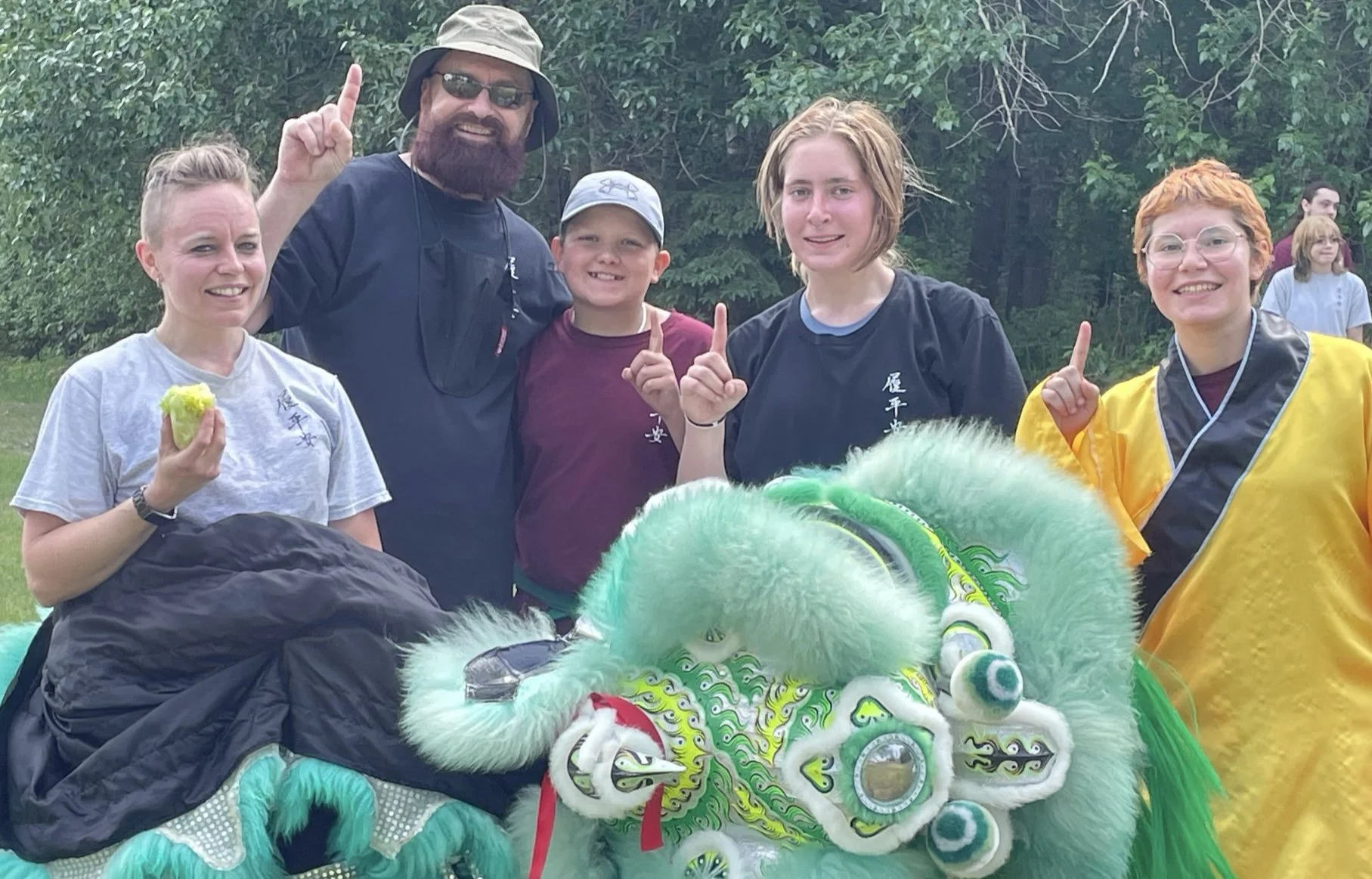Instructor Investment and Engagement
I want you all to think about this; what are we doing? As a kwoon, what are we teaching? What are our goals? What would be our ultimate home run?
Quick and easy answer is “we’re teaching Kung Fu”. This answer is the equivalent of answering “practice” when defining how to improve your Kung Fu. Well, yes. But I hope we all delve deeper when we’re working on our own Kung Fu, looking at details when improving our skill, applying our understanding after a lesson.
When teaching, the absolute ultimate goal in my mind is the overall wellbeing, now and in the future, of the student or child in front of me. I do not control their diet. I do not control their home life. I do not control any of the events they will experience, positive or otherwise. I do not control what they are taught, outside of the one or two hours a week they are within these walls.
The only way we have any influence over their wellbeing is to give them as much chance to mould it for themselves. To provide as many tools as we can to set them up for success and happiness in their lives, from the moment we meet, and hopefully beyond the last time we see each other. Lasting skills and tools, that is what we strive to provide.
Kung Fu is the vessel for this. I have not chosen to dedicate my life to Kung Fu because it taught me to kick through a board. Whoopdee doo. I give my time and energy because I know the skills it gave me and the impact they had. It opened doors for me, provided opportunities. Opportunities that I had created myself, knowingly or otherwise. Created by me due to the skills and structure given to me by my own instructors.
When developing new drills or new program initiatives, when dealing with the rest of the instructor team, when deciding how to manage a distracting child, keep this goal in mind. How are your actions (or inaction!!!) going to contribute to the wellbeing (or detriment) of the individual in front of you? Does it serve you, the program, this overarching purpose, to reprimand or to encourage? Will anyone grow?
We have an extreme amount of influence on the students, specifically the kids, for better or worse. There is no neutral on this, if you are in the room you are an influence. Your inaction tells a story to the student. Unfortunately, inactions is usually interpreted as the instructor is “too busy” or doesn’t care.
If you believed your instructors didn’t care, would you still be here? Would you have achieved your current rank? Gained any of the benefits?
Be the instructor you want. Knowledgeable, skillful, deeply involved and invested in your future. Willing to get into the thick of it with you, not just watching from the sidelines.
Annual Events
To maximize engagement and overall student retention, it is important to spread out our extra-curricular events throughout the calendar year. Moving forwards we will be scheduling our events as follows:
January/February - Chinese New Year Banquet *
January - Black Belt Presentations/Ceremony
March - Syllabus Review/Revision
April - Tiger Challenge *
May - Forms Bootcamp
June - Farmers Day Parade/Demo
July - Canada Day Demo
August - Back to School Week/Kwoon Renovations
September - Potato Bake
October - Breakathon *
November - Syllabus Review/Revision
December - Silent Auction
*Indicates viewable opportunity for Children’s Class parents.
The bi-annual Syllabus Review/Revision will give us the opportunity to address any syllabus improvement opportunities twice a year. This will ensure consistent collaboration and engagement for all instructors. It will also allow for syllabus stability and a ‘cooling off’ period where we are able to consider changes for a while before we actually decide to implement them. This will ensure less knee-jerk reactions to specific issues happening in specific classes.
Also within this schedule of events will be various Sil Lum Seminar Series events scheduled for Saturdays.
Engagement Over Correction
The success of any student does not rely on their natural skill or ability to apply a lesson. These things can be learned and developed over time. The primary factor is their engagement in their classes and in their success in Kung Fu.
As instructors, this has to be our mandate. Engage, don’t correct. Corrections are critical for the progress of their skill, however they are worthless and inefficient if the student is not engaged. Without engagement, they will not hear their instructors and will not feel compelled to apply the knowledge they are given. Corrections are meaningless in this situation.
Our number one job, and the number one thing on our minds each and every time we step on the mats as an instructor, is to connect with each student. Engage them, encourage them, make them feel safe and happy to be there. They need to know that their presence makes us happy, that we want them there. If we can do this for each student, child or adult, they will become receptive to our lessons.
Corrections should be a byproduct of this engagement. They should be given in the spirit of encouragement, we want them to be the best version of themselves they can be, NOT that they can do better. If what we are thinking is that they should be or need to be better, then we will portray the feeling that they are not good enough. That feeling is a potential cancer to anyone.
It doesn’t matter how quickly they progress or what challenges they currently face. Each and every hiccup is potentially a moment that will make them an even greater martial artist, IF we can help them through the slumps. If not, then it will spell the end of their time in our school. Reprimanding a student for a challenge they are facing is a sure way to push them out the door. Don’t kid yourself, each time a student pushes back or rolls their eyes is a challenge they are moving through. It is our job to help them reach the other side and be better for it.




